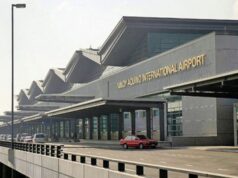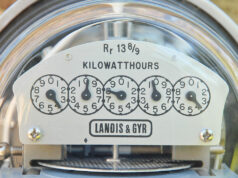WATER industry stakeholders said priority legislation is needed to improve management of the resource, with proposed measures including a unified government body to oversee the various agencies specializing in water issues and to expand rainwater collection.
After seven water conferences in various parts of the country, stakeholders said other propoasals include a cost-benefit process for deciding the allocation of irrigation funds; water-related data colletion by the Philippine Statistics Authority (PSA); a sift to cost-effective water technologies; and initiatives to prevent future water damage.
The recommendations will be presented to President Rodrigo R. Duterte at a national water roadmap and summit conference.
There are about 30 government agencies that handle water-related issues, including the Department of Agriculture (DA), Local Water Utilities Authority (LWUA), NWRB (National Water Regulatory Board), and the Department of Public Works and Highways (DPWH), among others.
About 73 persons die daily in the Philippines because of water-related diseases, and the counry collects only 4% of rainwater, well off the Indian level of 60%. The Philippines ranked in the bottom quarter of the Asian Development Bank (ADB) water studies rankings in 2013 and 2016.
In her remarks at the latest pre-summit conference, Sen. Loren B. Legarda, chair of the Senate Committee on Climate Change, warned that problems in water can worsen with the effects of climate change.
“Water stress, amplified by climate change, will lead to a real and growing security challenge,” she said.
The issue of reforming the water sector came to President Rodrigo R. Duterte’s attention when the Agri-Fisheries Alliance (AFA), a stakeholder group from the private sector, met with the then-candidate in April 2016.
Ernesto Ordoñez, convenor of the AFA and concurrent Secretary-General of the National Water Roadmap and Summit, said that the timeline for the action points gathered from the Water Pre-Summits range from six months to three years.
Socioeconomic Planning Secretary Ernesto M. Pernia said that people should realize that “water is life”, even if it “sounds like a cliche”, and that the need for water is greater than the need for other necessities.
“It trumps other needs such as power (electricity)… Water resources have to be distributed equitably, across the country, and across the regions as well, across social sectors,” Mr. Pernia said.
The priority bill to create a single body overseeing water aims to harmonize all water-related functions under one government office, according to Mr. Pernia.
“The issue now is we have too many agencies or bodies looking after water. What we need to do is just have one apex body, it can be the NWRB, but it should be properly authorized and financed so it can be a powerful body, [and it will be] the only apex body… concerned with water issues and problems.”
Mr. Ordoñez said that the summit’s goal is to have the bill “certified as priority,” noting that an urgent certification is the only way for the bill to hurdle Congress.
“If [this is not certified as urgent, then]…nobody listens, [and] it will continue to gather dust,” he added.
Mr. Pernia added: “I don’t see how anybody can oppose or object to improving our water supply.” — Patrizia Paola C. Marcelo



